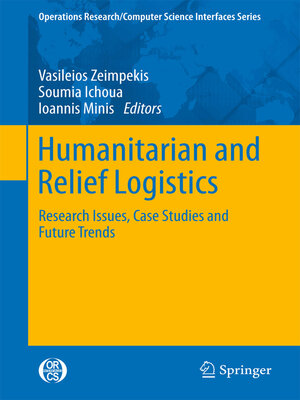Humanitarian and Relief Logistics
ebook ∣ Research Issues, Case Studies and Future Trends · Operations Research/Computer Science Interfaces Series
By Vasileios Zeimpekis

Sign up to save your library
With an OverDrive account, you can save your favorite libraries for at-a-glance information about availability. Find out more about OverDrive accounts.
Find this title in Libby, the library reading app by OverDrive.



Search for a digital library with this title
Title found at these libraries:
| Library Name | Distance |
|---|---|
| Loading... |
This edited volume highlights recent research advances in humanitarian relief logistics. The contributed chapters span the spectrum of key issues and activities from preparedness to mitigation operations (response), planning and execution. The volume also presents state-of-the-art methods and systems through current case studies.
Significant issues in planning and execution of humanitarian relief logistics discussed in this volume include the following:
This volume provides robust evidence that research in humanitarian logistics may lead to substantial improvements in effectiveness and efficiency of disaster relief operations. This is quite encouraging, since the unique characteristics of disaster scenes provide significant opportunities for researchers to investigate novel approaches contributing to logistics research while offering a significant service to society.







